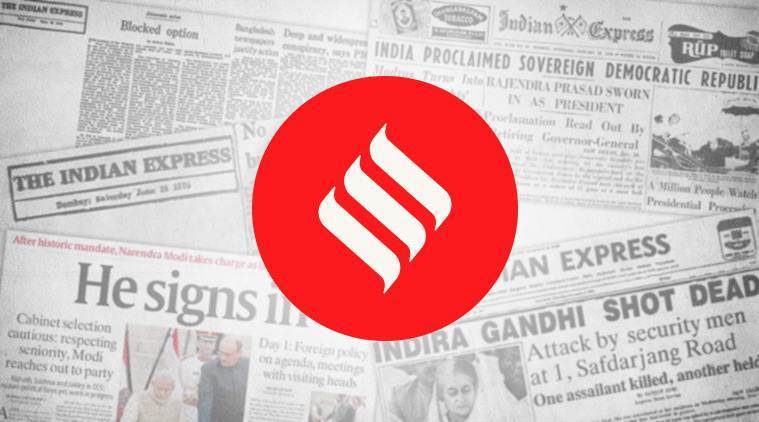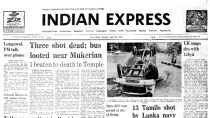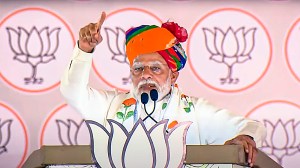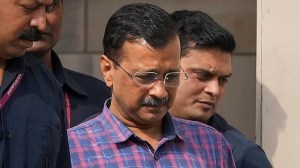- India
- International
India, a temple, and a mosque
All parties must respect, abide by SC verdict on Ayodhya. BJP, in power, has an added responsibility: Make it about future, not past.
 The Supreme Court verdict on Saturday, November 9, which recognises the Hindu claim over the disputed land, while directing the building of a mosque on a suitable plot elsewhere in Ayodhya, meets that promise, by and large.
The Supreme Court verdict on Saturday, November 9, which recognises the Hindu claim over the disputed land, while directing the building of a mosque on a suitable plot elsewhere in Ayodhya, meets that promise, by and large.
As the Ramjanmabhoomi-Babri Masjid title suit in Ayodhya dragged on for over seven decades, it became clear that, in the end, it would have to be settled in court, resolution would have to come within the ambit of law and the Constitution. Politics had, far from facilitating any meaningful give and take, only deepened the polarisation. And mediation efforts outside the court had invited charges of bad faith. Closure would have to come, it became evident, not by the brute calculations of majority and minority, nor by taking the legislative route, but by invoking a higher principle. A solution would have to be situated in justice and due process, and all parties would have to respect and abide by it.
The Supreme Court verdict on Saturday, November 9, which recognises the Hindu claim over the disputed land, while directing the building of a mosque on a suitable plot elsewhere in Ayodhya, meets that promise, by and large. The unanimity of the five-judge Constitution bench led by Chief Justice Ranjan Gogoi is not an incidental artefact of the ruling — it is part of its essence. In the aftermath, it instantly lowers temperatures. And going ahead, it creates crucial room for all political players to speak to their constituencies.
But of course, even a unanimous verdict sparks questions. In a democracy, on a dispute as tangled and resonant with claims, complexities and ambiguities as Ayodhya, a tidy closure will always elude.
Admittedly, the nature of the task before the court was almost impossibly fraught and, to its great credit, it has tried to find a balance between pronouncing on a matter that involves faith, belief, contested history and bringing into play settled principles of evidence sustainable in law. It has recognised the Hindu claim over the disputed site because of the existence not merely of faith and belief but of “actual worship down the centuries”. Crucially, however, the court has also acknowledged that the damage to the mosque in communal conflict in 1934, its desecration in 1949 when idols were installed on the pulpit below the central dome, and its destruction in 1992, “constituted a serious violation of the rule of law”. Under exercise of its powers under Article 142 of the Constitution to do “complete justice”, the court has, therefore, directed that 5 acres be handed to the Sunni Waqf Board by the Central government out of the acquired land, or by the UP government within the city of Ayodhya, simultaneous to the handing over of the disputed site to a trust.
The court prefaces its verdict by saying it has been “tasked with the resolution of a dispute whose origins are as old as the idea of India itself.” It unambiguously underlines that “title cannot be established on the basis of faith and belief.” But after invoking the Constitution and constitutional values of justice, fraternity, human dignity and equality of religious belief, the final settlement it makes is of a bare title suit. This raises a question: Could the act of judgment have been more an act of imagination of a more equal justice? Could it be that the Allahabad HC order of a three-way ownership of the disputed land offered a cue?

These questions have no immediate answers. But one thing is clear. The Supreme Court verdict must now be taken forward and built upon by all stakeholders. In his address to the nation, Prime Minister Narendra Modi has spoken of a new resolve, a new dawn, of the need for India to leave behind past bitterness. The Opposition parties have signalled their acceptance of the verdict. There are signs of ferment among Muslim groups, with the IUML backing the ruling, but the Muslim Law Board expressing dissatisfaction. It is the right of the Muslim side of the dispute to ask for a review, but that decision must be taken calmly, wisely.
For the politics of secularism, the verdict brings the promise of freedom — from the burdens and dead-ends of a congealed dispute. It is now faced with the task of renewal — to find a new vocabulary, and to fill it with new issues and meanings. For the BJP, too, which used the Ramjanmabhoomi dispute and the demolition of the Babri masjid to propel itself to relevance and power, this is a moment of challenge: At a time when the judicial clearing of the path to the temple helps it to claim political vindication, as the ruling party at the Centre and a majority of states, in a country where almost half of the population was born after 1992, it needs to make the Ayodhya verdict more about the future, less about the past.
EXPRESS OPINION
Must Read
More Explained
Apr 23: Latest News
- 01
- 02
- 03
- 04
- 05
































